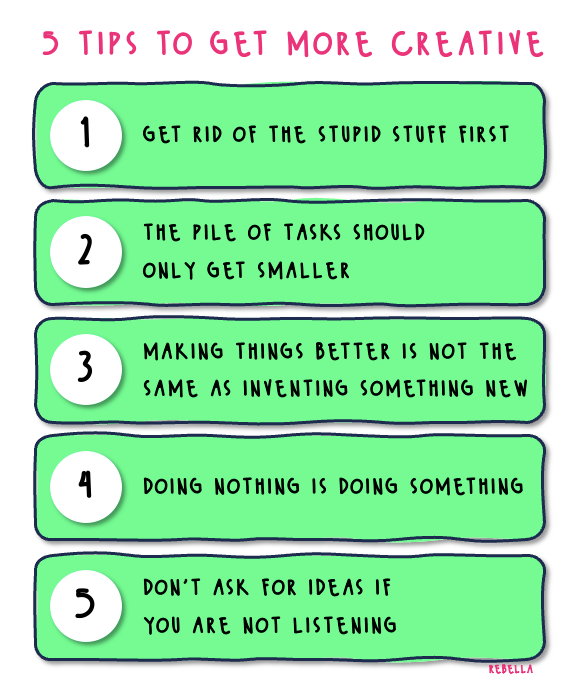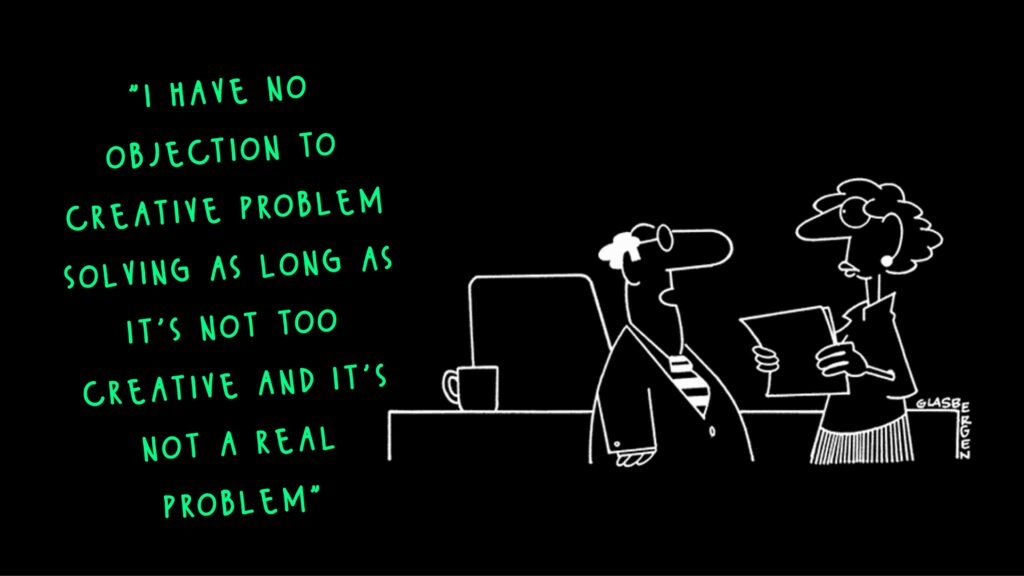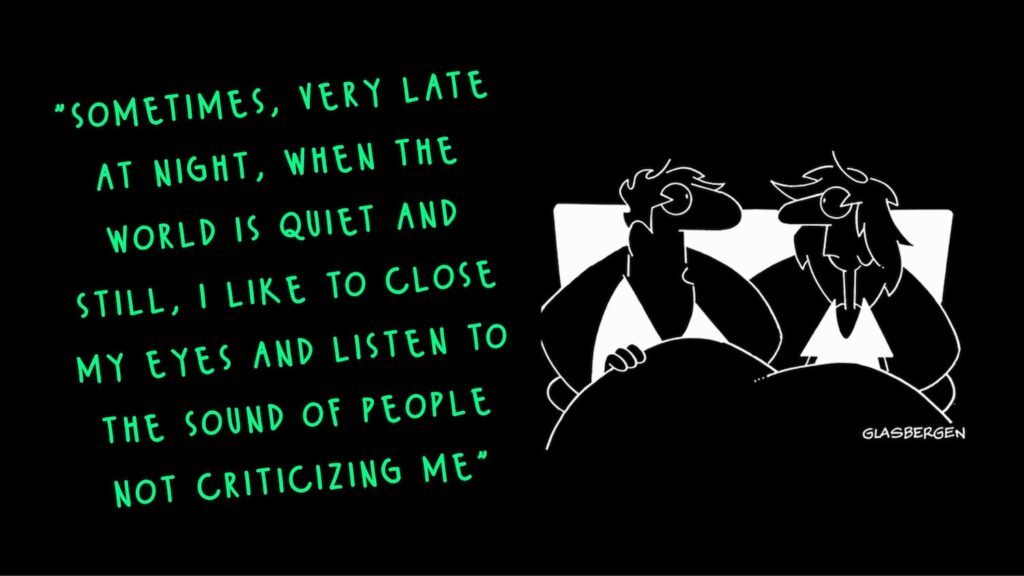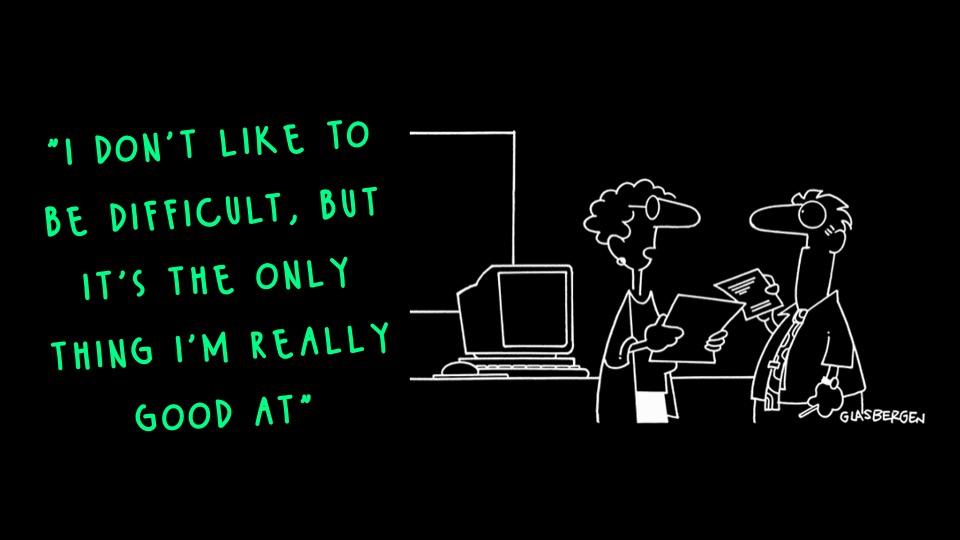
dr rebel: don't expect creativity when people are stuck in your bureaucracy swamp
Today’s question: i wish my team would develop more new ideas. how can i help them to rebel a bit more?
people don’t come up with new ideas for a variety of reasons. the assumption is it’s due to a lack of imagination, but i have a different perspective. i lead many innovation sessions, and ideas come easily when the right setting is created.
let me share my top 5 reasons why i see people remain silent when asked to bring new ideas to the table (and what to do about it).

1/ get rid of the stupid stuff first
most people are overloaded with meetings and bureaucracy. they don’t have the time or the mindset to be creative and come up with fresh ideas. it’s not that they can’t do it (think of children, they ALL are creative and so are we), but the bureaucracy is preventing them from getting going.
make sure to get rid of the stupid stuff first, and the best way to do it, is to involve your team. they know which rules and procedures take a lot of time and energy but don’t add any value. get creative on busting bureaucracy and then use the time you have freed up to work on fresh concepts. act swiftly and your team will be motivated to come up with more suggestions.
2/ the pile of tasks should only get smaller
we prefer to add stuff rather than remove it. so, when a problem occurs we solve it by adding a new rule, meeting, or procedure. i believe it’s a result of our loss aversion bias. that’s why we end up with so much unnecessary bureaucracy. (check my column about this)
also, it’s tempting to start new initiatives before you’ve finished your running projects. but all these open ends take a lot of time and headspace. furthermore, unfinished tasks come with a feeling of dissatisfaction, which drains the team’s energy.
help your team and use these two principles:
- before you add something new, remove something old
- finish things before you start something new
3/ making things better is not the same as inventing something new
do you need new ideas to improve the current state, or do you want to develop a fully new concept? these are two different things and they require a different skill set.
- when you want to improve the way you work get to the root causes of the problem first to fix it for good. some people are really good at spotting problems but lack the imagination to come up with fresh ideas to solve them, while others may be the other way around.
- when you want to come up with a new concept, you need the ones who are natural at dreaming big. formulate your challenge as a ‘How Might We”-question and they will fly!
know your team members and learn their strengths and passions. don’t make them do things they’re not good at and put them in situations where they will thrive.
4/ doing nothing is doing something
it’s okay when your people get bored and let their minds wander for a while. this is where random insights and ideas are connected in the brain and new things surface. many innovations were not born during a meeting at the office.
for instance, the first iPhones had a sliding lock to open the phone (nowadays this feature is used to answer a call). did you know this idea originated in the toilet of an aeroplane? check the sliding lock of a toilet on board and you’ll see it’s the same!
5/ don’t ask for ideas if you are not listening
are you sure your people feel safe to speak up? how did you react when team members shared their (crazy) ideas in the past? did you really listen and take action, reject them, or even worse, ignore them?
asking for random new ideas often leads to disappointment, both for you as a leader and the team member who shares an idea:
- ideas can be outside your control. what will you do when a team member comes up with a suggestion unrelated to or transcending your responsibilities?
- ideas may look good at first, but are not when you consider the greater context eg the impact on other departments. how are you going to handle this?
- ideas may be too radical in your point of view and you don’t want to go there. how do you handle this situation?
if you can’t handle totally silly or radical ideas, don’t ask for them. then, it’s better to provide more context, for instance, by asking for fresh ideas in a specific area.

do you have a burning question for dr rebel?


